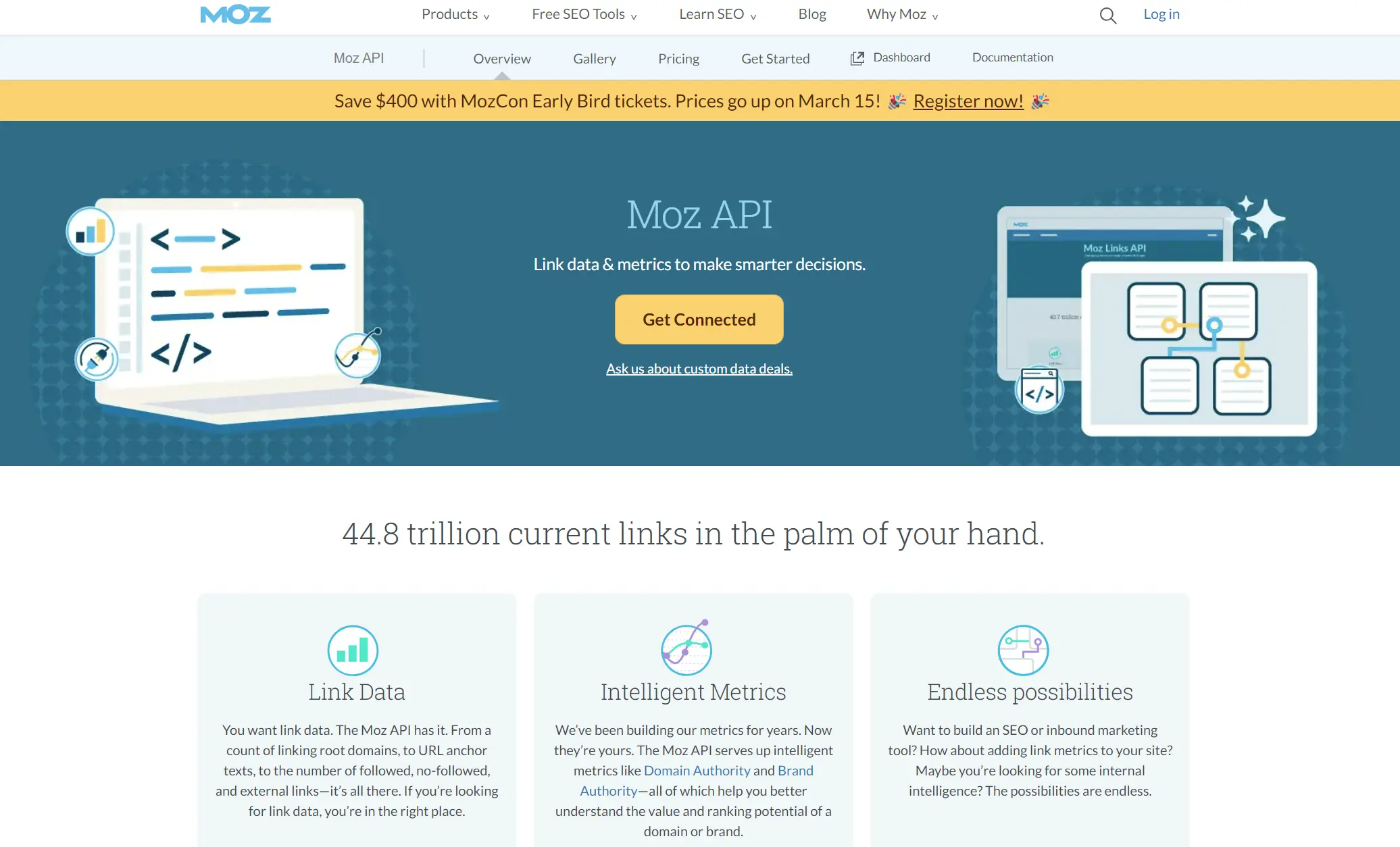Is your SEO strategy data-driven, or are you just guessing? In the ever-evolving landscape of search engine optimization, the intelligent leverage of Application Programming Interfaces (APIs) is no longer optional; it's a fundamental necessity for achieving tangible results and staying ahead of the competition.
The digital realm offers an overwhelming torrent of information. The capacity to successfully harness this information is frequently the difference between a website that thrives and one that fails to reach its full potential. SEO APIs provide this capacity by allowing marketers, analysts, and developers to access, analyze, and act upon information that would otherwise be beyond their grasp.
Consider this: The modern SEO professional must not only understand search engine algorithms but also be adept at interpreting vast datasets, anticipating user behavior, and identifying new opportunities. This demands a level of agility and insight that traditional methods struggle to provide. SEO APIs offer a streamlined pathway to this level of sophistication, granting access to crucial data points and automating tasks to deliver increased efficiency and effectiveness.
The Core Functions of SEO APIs: A Detailed Analysis
At its core, an SEO API acts as a translator, facilitating seamless communication between your SEO tools and various data sources. These data sources can range from search engine result pages (SERPs) to social media platforms, website analytics, and beyond. By using APIs, you gain access to data on everything from keyword rankings and backlinks to competitor analysis and website traffic. Furthermore, you are also able to access new data points, like SERP data, as they become available.
Here is a table that illustrates some of the main benefits and functionalities of using SEO APIs:
| Functionality | Description | Benefits |
|---|---|---|
| Keyword Research | Retrieving data on search volume, keyword suggestions, keyword difficulty, and related phrases. | Identifying high-potential keywords, optimizing content, and uncovering new opportunities. |
| Rank Tracking | Monitoring keyword rankings across different search engines and geographies. | Tracking progress, identifying ranking fluctuations, and measuring campaign effectiveness. |
| Competitor Analysis | Analyzing competitors' keywords, backlinks, and website performance. | Gaining insights into competitors' strategies, identifying areas for improvement, and spotting new opportunities. |
| Backlink Analysis | Gathering data on backlinks, including referring domains, anchor text, and link quality. | Assessing the strength of your backlink profile, identifying opportunities for link building, and monitoring competitor backlinks. |
| Website Audits | Automating technical SEO audits to identify website errors and areas for improvement. | Improving website performance, ensuring crawlability, and enhancing user experience. |
| Content Optimization | Analyzing content for keyword usage, readability, and other SEO factors. | Optimizing content for search engines and users, increasing visibility, and driving organic traffic. |
| Data Integration | Integrating SEO data with other business systems, such as CRM and sales workflow tools. | Gaining a holistic view of your business performance, making data-driven decisions, and improving efficiency. |
These capabilities translate into many practical advantages. By providing access to the industry's biggest proprietary sources of current and historical SEO data, APIs empower SEO professionals to make more informed decisions. The ability to quickly respond to changes and adapt to search algorithm requirements is paramount in the fast-paced environment of digital marketing. This can be achieved because SEO APIs provide access to current information about website rankings, traffic analytics, keywords, and other factors that impact search engine optimization.
Diving Deeper: Key SEO API Providers and Their Offerings
Numerous platforms provide robust SEO APIs, each with its own set of features and strengths. The choice of the appropriate API frequently depends on the specific needs of the user and the scope of their project. Let's examine some of the leading players in the SEO API market and what they bring to the table.
Here is a table with the detail of leading SEO APIs:
| SEO API Provider | Key Features | Benefits | Use Cases | Pricing Information | Link |
|---|---|---|---|---|---|
| Moz API | Comprehensive SEO data, including link analysis, keyword research, site audits, and rank tracking. | Access to a vast index of links, robust keyword data, and powerful site auditing tools. | SEO audits, keyword research, link analysis, and competitor analysis. | Pricing varies based on usage and features; offers a free trial. | Moz API |
| Semrush API | Extensive keyword research, competitor analysis, backlink analysis, and site audits. | Detailed insights into competitor strategies, comprehensive keyword data, and robust backlink analysis. | Competitor analysis, content optimization, rank tracking, and backlink analysis. | Pricing is available upon request, offers free requests with an account. | Semrush API |
| Ahrefs API | Powerful backlink data, competitor analysis, keyword research, and rank tracking. | Extensive backlink index, precise keyword data, and sophisticated competitor analysis tools. | Backlink analysis, competitor research, keyword analysis, and content research. | Pricing based on usage and features. | Ahrefs API |
| Serpstat API | Keyword rankings, backlink analysis, and competitor analysis. | Detailed competitor analysis, keyword data, and backlink information. | Competitor analysis, keyword research, and rank tracking. | Pricing based on usage. | Serpstat API |
| DataForSEO API | Comprehensive data solutions for SEO and SEM analytics, including SERP data, keyword data, and competitor analysis. | Access to a wide range of SEO data and data solutions. | SEO and SEM analytics, competitor analysis, keyword research. | Pricing is based on usage and the specific data required. | DataForSEO API |
| Seobility SEO API | Access to data and functionality of the Seobility SEO software technology. | Simple integration via REST API, data in JSON format. | Website audits, rank tracking, and on-page optimization. | Pricing is available based on the specific integration plan. | Seobility SEO API |
The Technical Underpinnings: How SEO APIs Function
At their core, SEO APIs are built on the idea of allowing different software systems to communicate and share data. This communication occurs via a defined set of protocols and tools. The fundamental mechanism is an API, which acts as an intermediary, enabling applications to request data and functionalities from a particular platform without needing to know the specifics of the underlying code.
The "method name" specified in the request body identifies the desired operation. For example, an API call might request search volume data for a specific keyword or a list of keywords. The API then processes the request, fetches the necessary data from the appropriate source, and returns the result in a standardized format, often JSON. JSON (JavaScript Object Notation) is a widespread data format that is easily parsed by a wide range of programming languages.
Simple integration via REST API is a common feature. REST (Representational State Transfer) APIs are built on HTTP (Hypertext Transfer Protocol) and use standard HTTP methods like GET, POST, PUT, and DELETE to perform operations on data. The ease of integration and the universality of the JSON output format of the API make them perfect for incorporation into various applications, widgets, and dashboards.
Practical Applications: How to Use SEO APIs
The flexibility of SEO APIs opens up a world of possibilities for streamlining and improving SEO operations. Here are some of the most common ways SEO professionals use APIs:
- Automated Reporting: Automate the creation of reports by collecting and compiling data from different sources.
- Keyword Research: The retrieval of search volume data, keyword ideas, and difficulty scores for a certain set of keywords.
- Rank Tracking: Keep an eye on keyword rankings over time and across various search engines.
- Competitor Analysis: Analyzing the keywords, backlinks, and website performance of competitors.
- Backlink Analysis: Gathering data on backlinks, including referring domains, anchor text, and link quality.
- SEO Audits: Run SEO audits for a large number of prospects and integrate SEO audits into your sales workflow & CRM.
- CRM and Sales Workflow Integration: Integrating SEO data into existing CRM or sales workflow to improve lead qualification and sales performance.
- Custom SEO Tools: Developing specialized SEO tools, such as keyword research tools or backlink analysis platforms.
Making the Most of SEO APIs: Best Practices and Considerations
Using SEO APIs effectively requires a strategic approach. By adhering to best practices, you can maximize the advantages and minimize the potential downsides. Consider these points:
- Understand Your Needs: Before selecting an API, clearly define your SEO objectives and the types of data you require.
- Select the Right API: Evaluate the features, pricing, and documentation of various API providers to discover the one that best suits your needs.
- Respect Rate Limits: Be aware of the rate limits imposed by API providers and design your applications to stay within those limits.
- Handle Errors Gracefully: Implement robust error handling to deal with API failures and data inconsistencies.
- Protect Your API Keys: Keep your API keys secure and never share them.
- Stay Updated: Keep up with the latest API documentation and updates to take advantage of new features and functionalities.
- Data Visualization: Integrate our API into your internal application, widget, or dashboard to visualize data through your custom interface.
The Future of SEO APIs: What's Next?
The potential for SEO APIs continues to grow. As search engines and social media platforms evolve, the data they provide and the complexity of their APIs will increase. Several trends will likely shape the future of SEO APIs:
- AI-Powered Insights: Incorporating artificial intelligence (AI) and machine learning (ML) to automate the analysis of massive datasets.
- Integration with More Data Sources: Connecting to additional data sources, like e-commerce platforms, social media, and user behavior analytics tools.
- Enhanced Automation: Automation of more SEO tasks, from content creation to backlink acquisition.
- Greater Personalization: APIs will increasingly be tailored to individual user requirements.
SEO APIs are a transformative force. By taking advantage of their capabilities, businesses can obtain a significant competitive edge, optimize their SEO efforts, and ensure long-term success in the online world. Whether you're a seasoned SEO professional or a newcomer to the field, integrating SEO APIs into your strategy is a wise investment in the future of your business.


